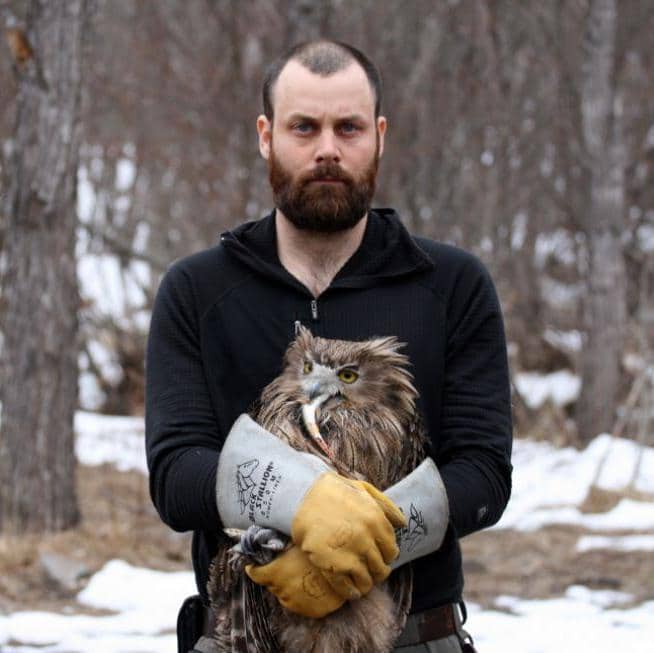Jonathan C. Slaght, author of Owls of the Eastern Ice: A Quest to Find and Save the World’s Largest Owl
General Nonfiction category
Each week leading up to the 33rd annual Minnesota Book Awards announcement, we are featuring exclusive interviews with our 36 finalists. You can also watch the authors in conversation with their fellow category finalists here.
In a year defined by a pandemic and its fallout, virtually everything about our lives has changed in some way. How has COVID-19 impacted your writing habits and preferences? Has the unique zeitgeist of the past year influenced your writing output in any ways that you can pinpoint?

To be honest, I have not written much as a result of the pandemic. My inspiration to write comes from the far-off places I travel to and work in, and from the wildlife and the people I interact with there. I’ve been home for almost exactly a year now, working out of a Minneapolis closet, and my creativity is largely tapped. I’m very much looking forward to getting back Out There–not just for work but to rekindle my desire to write.
Would you tell us one or two things about your finalist book that you are particularly proud of, and why? (Sure, it may feel a bit un-Minnesotan to say so, but it’s not boasting if we ask!)
This is a book about owls. In Russia. That screams “niche market” to me, so mostly I am proud that this book reached mainstream audiences. I am so grateful that people are learning about this weird bird from a mysterious corner of the world.
What do you hope that your audience learns or takes away from your book?

It’s important to remember that wildlife know no political borders. At present, the relationship between the governments of the United States and Russia is…poor. But this is a book free of politics: it’s about people working together to help protect a shared love.
What advice would you give to an aspiring writer with an interest in your category?
Many scientists, like me, work in beautiful places, on remarkable projects, and have incredible stories to tell. However, it is often difficult for us scientists to convey this enthusiasm in language that is accessible to the broader public. My advice is to take special care to ensure the words you use will resonate with an in-law at Thanksgiving, not just your peers at a conference.
Tell us something about yourself that is not widely known! (It doesn’t have to be about your writing.)
I spent the first three years of my life in Montevideo, Uruguay, and my first language was Spanish (I don’t remember it at all now).
Jonathan C. Slaght is the Russia and Northeast Asia coordinator for the Wildlife Conservation Society. His work has been featured by the New York Times, The Guardian, the BBC World Service, NPR, Smithsonian Magazine, Scientific American, and Audubon magazine, among others.

